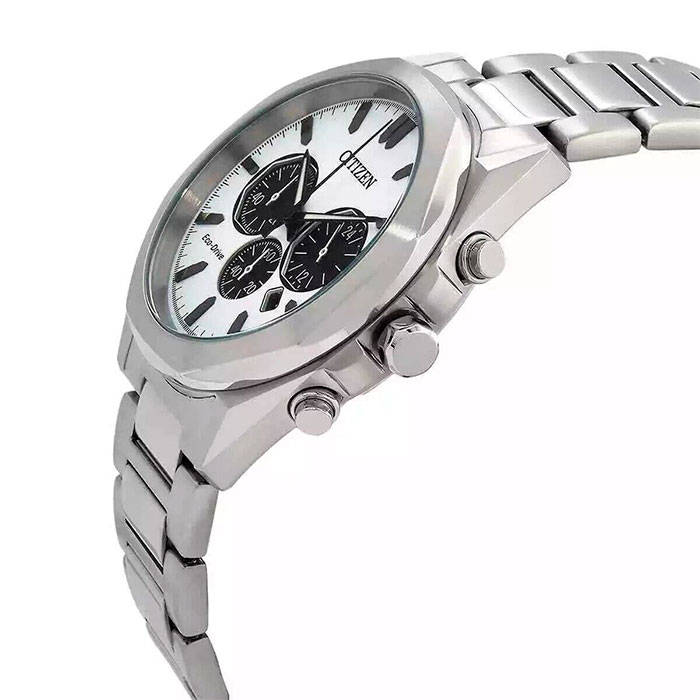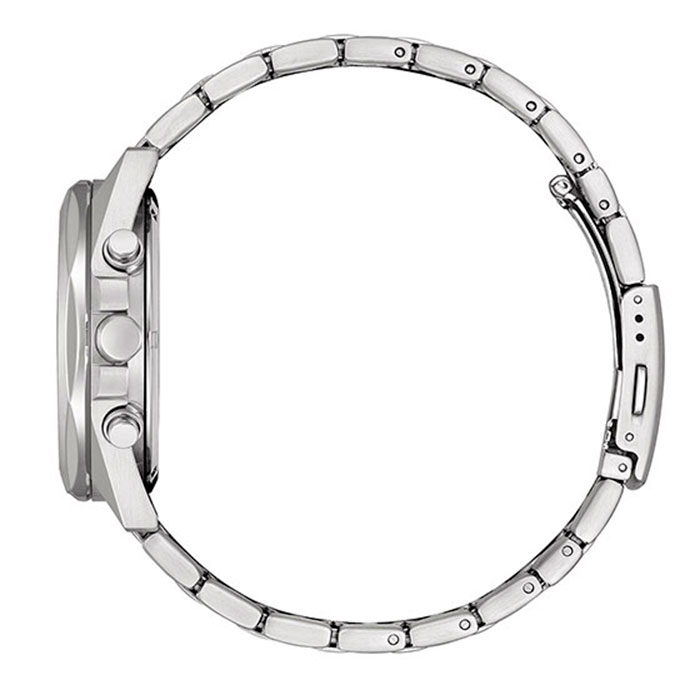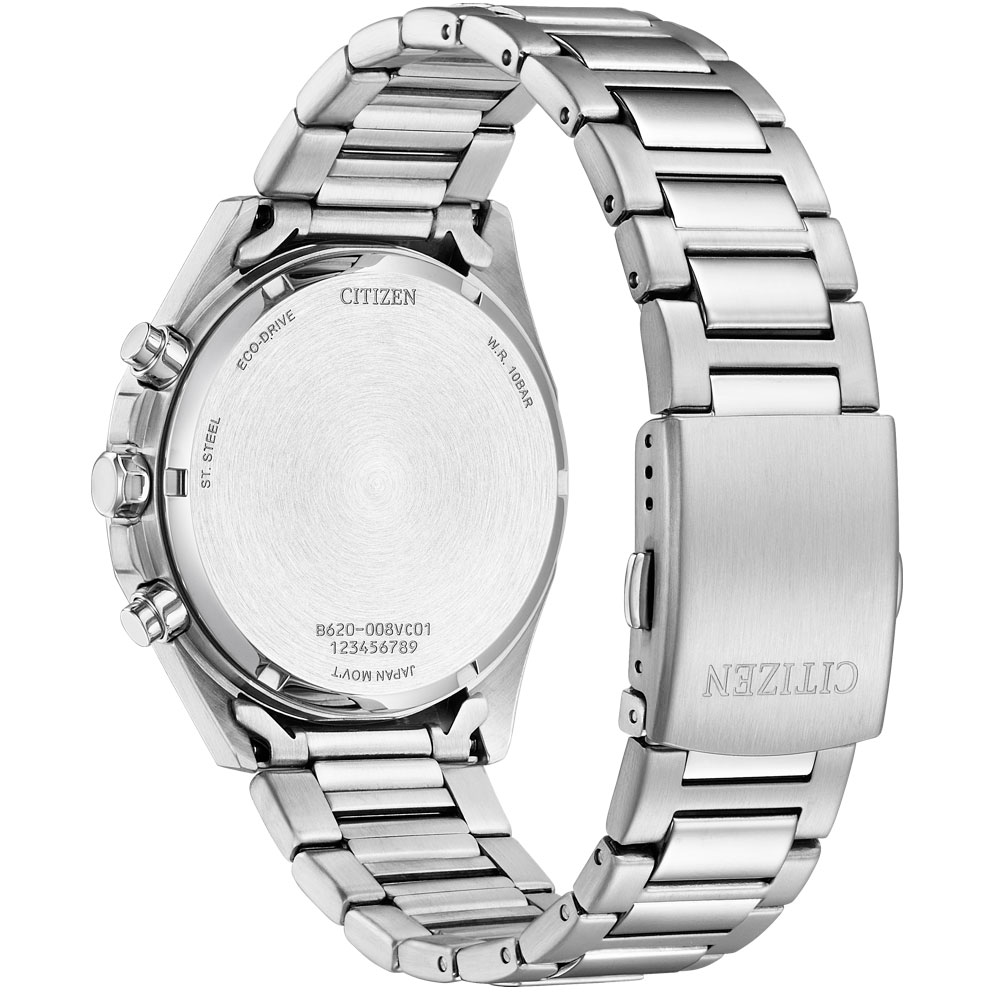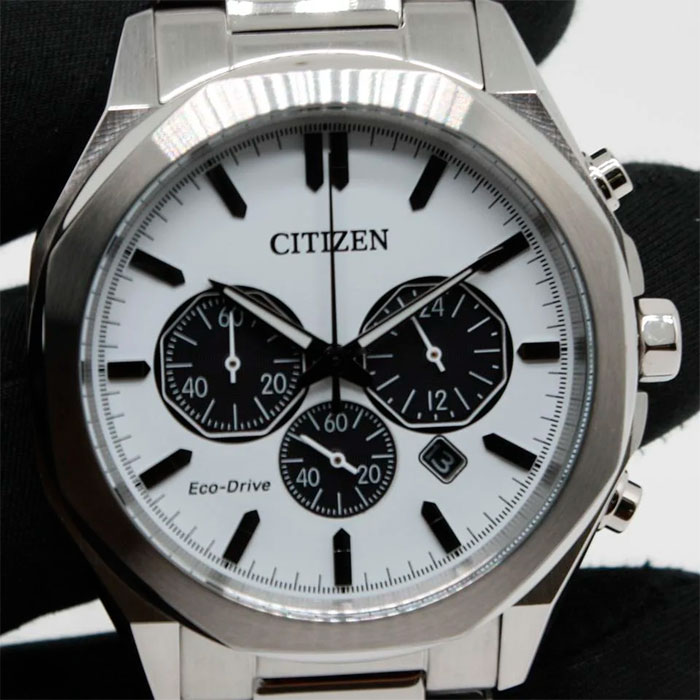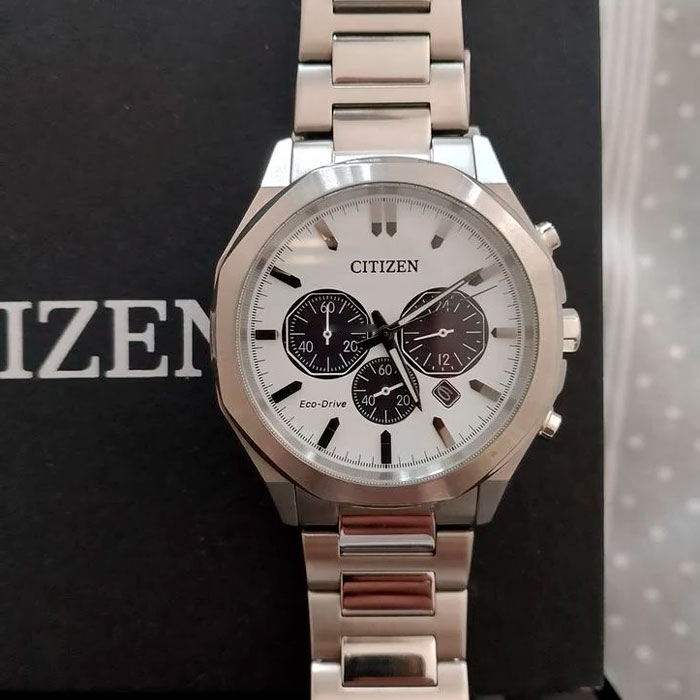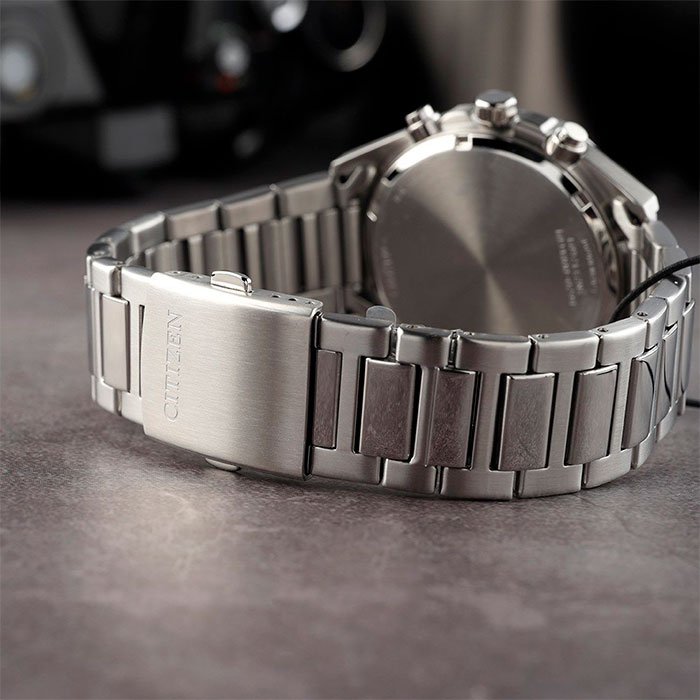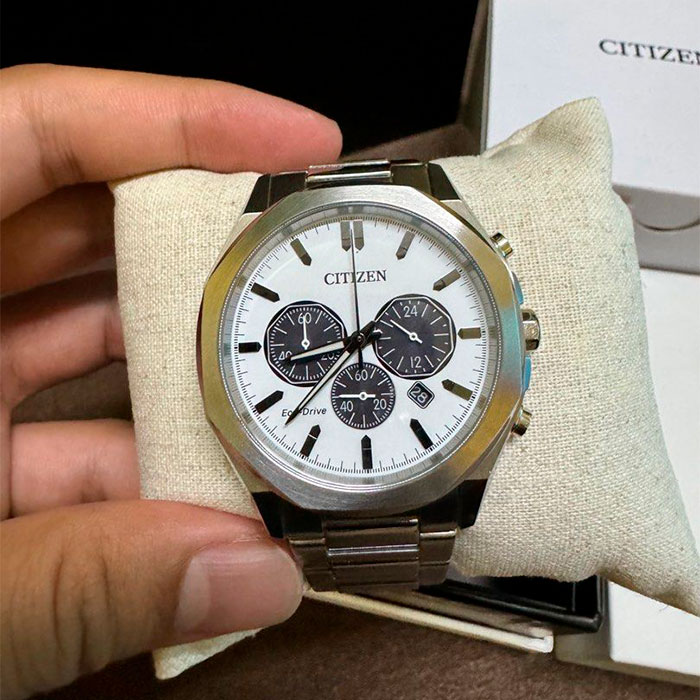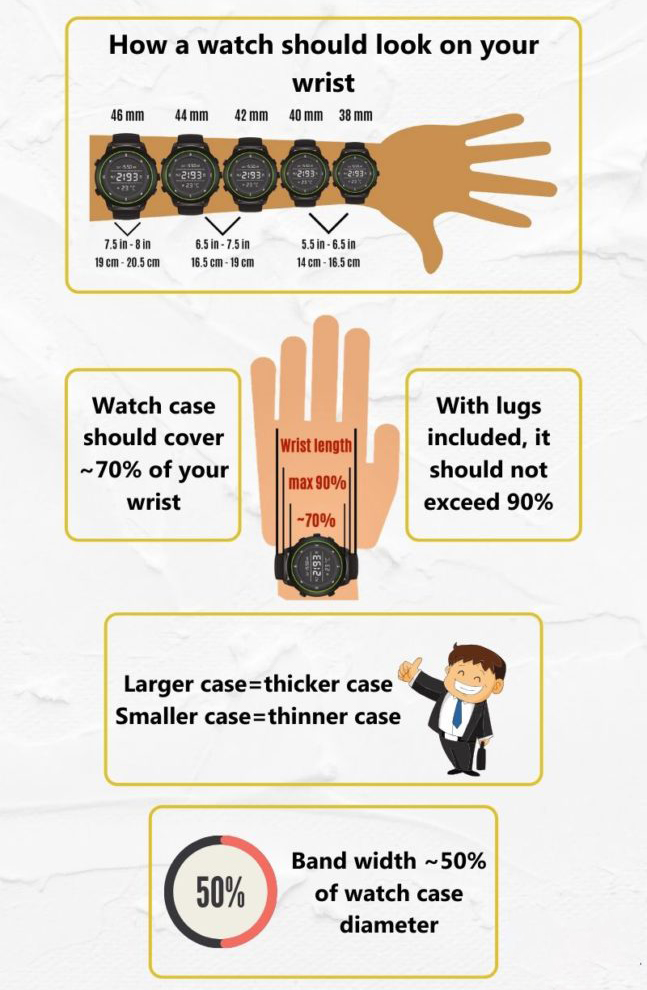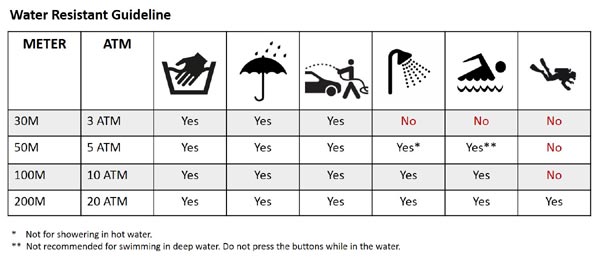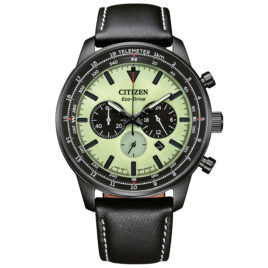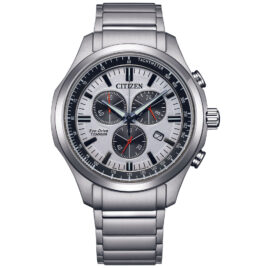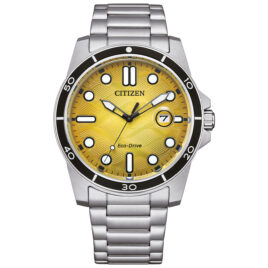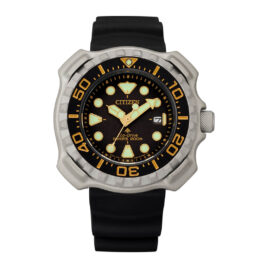Description
CITIZEN Eco-Drive CA4590-81A Specifications
| Feature |
| ||
|---|---|---|---|
| Driving system | Eco-Drive powered by light source | ||
| Caliber Number | B620 | ||
| Case material | Stainless steel | ||
| Case back | Solid | ||
| Band type | Bracelet | ||
| Band material | Stainless steel | ||
| Band color | Silver tone | ||
| Band width | 22 mm | ||
| Clasp | Fold over with push button safety | ||
| Dial color | Silver white | ||
| Glass material | Mineral crystal | ||
| Hands | Luminous hour, minute, second hand | ||
| Dial markers | Batons indexes with double indexes at 12 o’clock position | ||
| Second markers | Minutes markers around the outer rim | ||
| Sub dials | Three – 60 second, 60 minute and 24 hour | ||
| Bezel | Fixed stainless steel | ||
| Crown | Pull / push at 3 o’clock position | ||
| Calendar | Date display between 4 and 5 o’clock position | ||
| Function |
| ||
| Accuracy | ±15 seconds / month | ||
| Drive duration | Approximately 9 months (when fully charged) | ||
| Water resistance | 10 bar water resistance (100 meters / 330 feet) | ||
| Size | Diameter 41 mm x Thickness 12.1 mm | ||
| Weight | 140 g |
CITIZEN Eco-Drive CA4590-81A Features
Fueled by light. Any light. A watch that never needs a battery. Driven by a revolutionary light-harnessing technology that converges time, light, and the future.
- Solid screw case back
- Fixed stainless steel bezel
- Luminous dial
- 24-hours and date display
- Eco-Drive (recharged by any light source, no need to change battery)
- Insufficient charge warning function
- Overcharge prevention function
- Chronograph up to 60 minutes in 1/5-second increment
CITIZEN Eco-Drive CA4590-81A History
History of Citizen
The company was founded in 1930 by Japanese and Swiss investors. It took over Shokosha Watch Research Institute (founded in 1918) and some facilities of the assembly plant opened in Yokohama in 1912 by the Swiss watchmaker Rodolphe Schmid.
The brand Citizen was first registered in Switzerland by Schmid in 1918 for watches he sold in Japan. The development of this brand was supported in the 1920s by Count Gotō Shinpei with his hope that watches could become affordable to the general public. The growth of Citizen until World War II relied on technology transfer from Switzerland.


